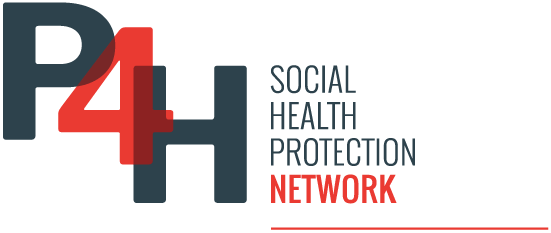The number of documents available on the P4H Network’s digital platform reflects the network’s scope of work. The majority of documents are primary source materials created by country nationals or resources produced by organizations working in social health protection (SHP) and/or health financing (HF).
Saving lives, spending less: the global investment case for noncommunicable diseases
Noncommunicable diseases (NCDs) such as cardiovascular diseases, cancers, diabetes, and chronic respiratory illnesses are the leading causes of death worldwide, claiming millions of lives each year and placing immense strain on health systems. The World Health...
Financing and purchasing mechanisms of primary health care in Southeast Asia region: Findings from a scoping review
Primary health care (PHC) is recognized as the cornerstone of resilient health systems, yet financing it remains a persistent challenge in many parts of the world. In Southeast Asia, countries continue to prioritize PHC in policy commitments, but questions remain...
What’s next for sugar taxes?
As global rates of obesity, diabetes, and other non-communicable diseases continue to rise, governments are increasingly turning to fiscal policies as tools for improving public health. Among the most debated and widely adopted measures are sugar taxes—levies designed...
Avoiding trillion-dollar delays: Pooled pandemic financing to reduce global losses
The Center for Global Development (CGD) has released a working paper by Ruchir Agarwal, Avoiding Trillion-Dollar Delays: Pooled Pandemic Financing to Reduce Global Losses (September 2025). The paper underscores how the absence of a coordinated financing mechanism...
Can people afford to pay for health care? New evidence on financial protection in Italy
Italy experiences higher catastrophic health spending than many EU countries, predominantly affecting low-income, southern-region, and pensioner-headed households, driven by outpatient medicines and care for poorer groups and dental care for wealthier ones....
Delivering on Health and Financial Protection for All: Financing Benchmarks for Essential NCD Services and Options for Improving Access to Affordable NCD Medicines
The report published by the NCD Alliance addresses one of the most pressing global health challenges of our time. Chronic illnesses such as cancer, diabetes, cardiovascular and respiratory diseases, along with mental health conditions, now account for the majority of...
Why drugs fail health technology assessment: a comparative analysis of health technology assessment rejections across seven OECD countries
In their article published in Health Economics, Policy and Law by Cambridge University Press, Filippos Papadopoulos, Erica Visintin, Ilias Kyriopoulos, and Panos Kanavos explore the reasons why certain drugs fail health technology assessments (HTAs) across seven OECD...
Inequalities and trends in access to health insurance and essential public health services among internal migrants in china: 2013 to 2018
China’s 2009 health-care reform expanded Universal Health Coverage (UHC), but inequalities persist for internal migrants. Analysis of nearly one million migrants (2013–2018) showed high medical insurance enrollment (87.4%) and financial protection improvements, but...
The impacts of removing pharmaceutical co-payments for chronic conditions at primary care level: a pilot study in rural China
A rural China policy waiving copayments for essential medicines in primary care (PC) significantly increased PC visits by 44% and outpatient spending at PC facilities by 40%. At the same time, outpatient hospital visits fell by 26%, though hospital spending and...
Cross-regional study of evidence gaps on unmet needs for health and social care: executive summary
Universal health coverage (UHC) is central to ensuring equitable access to health and social care services, yet significant unmet needs remain across regions, particularly among older populations. While global monitoring indicators track progress toward UHC, they...
Primary health care policy investments in the Latin America context: Health systems experiences from Brazil, Chile, and Colombia
Primary Health Care (PHC) is widely recognised as the cornerstone of equitable and resilient health systems, offering an essential route toward achieving Universal Health Coverage (UHC). In Latin America, the persistence of deep social and health inequalities,...
Quality of care for chronic conditions: literature review and Delphi survey on the possible contribution of purchasing arrangements in low- and middle-income countries
Chronic conditions, both noncommunicable and infectious, are driving a surge in premature morbidity and mortality, particularly in low- and middle-income countries (LMICs). Ensuring high-quality care for individuals living with these conditions is critical for health...
Addressing public health and health system challenges in Greece: reform priorities in a changing landscape
Greece’s health system has faced mounting strain from ageing populations, chronic diseases, financial pressures, and shocks like COVID-19 and climate change, which have exposed deep structural weaknesses. Although multiple reforms have aimed to improve funding,...
Is a Spending Freeze Sufficient to Stabilise the Contribution Rate in Germany’s Statutory Health Insurance? A Counterfactual Simulation
Germany's statutory health insurance expenditure has consistently outpaced member contribution revenues by about 1% annually for nearly 25 years, necessitating further contribution rate increases unless policy changes occur. A proposed spending moratorium aims to...
The effect of performance-based financing interventions on health worker motivation and job satisfaction
Concerns exist that performance-based financing (PBF) may erode intrinsic motivation by emphasizing financial incentives, though it could also enhance morale through improved conditions. Using six national pilot evaluations across Cameroon, Kyrgyz Republic, Nigeria,...
